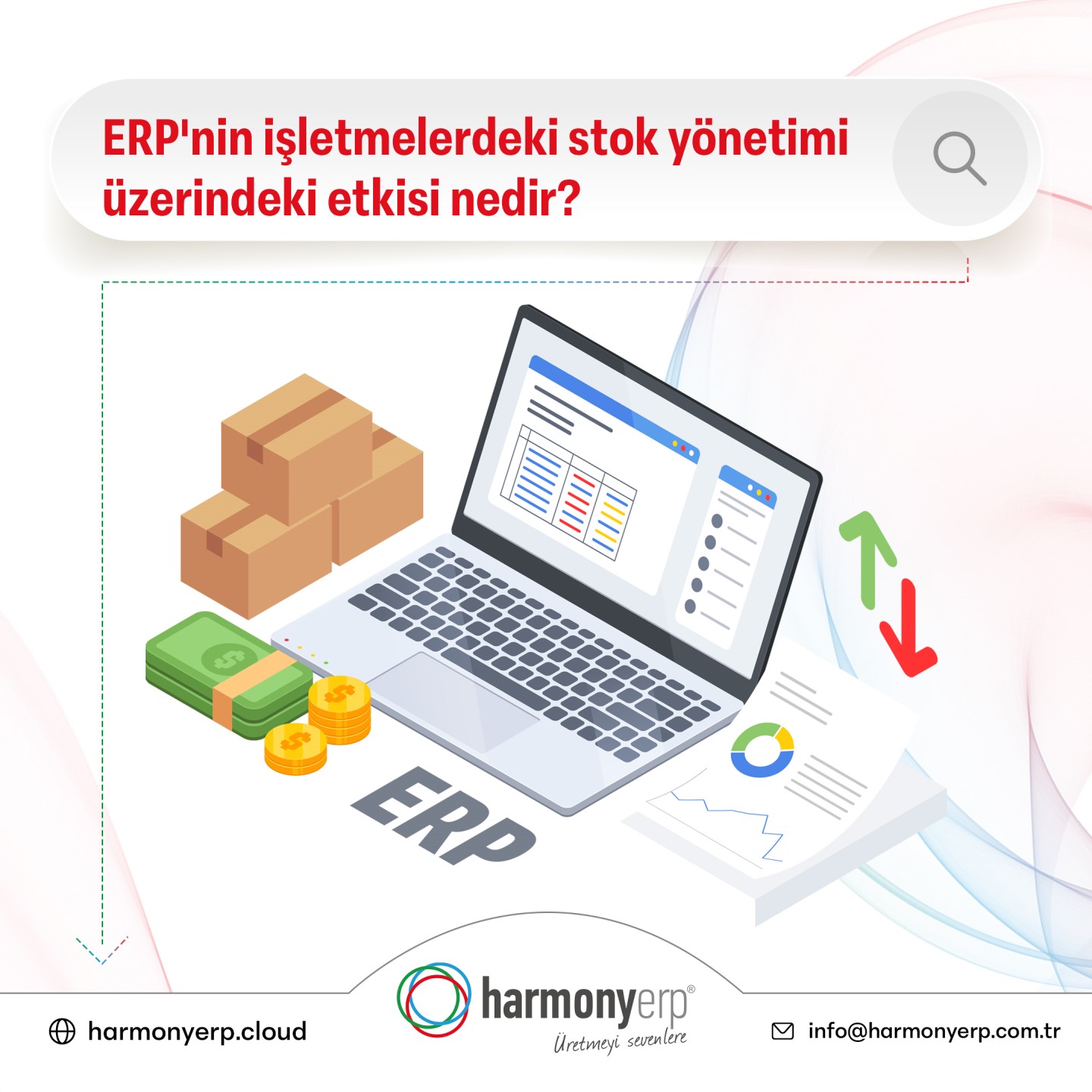What is the Impact of ERP on Inventory Management in Businesses?

Today, businesses are faced with increasing competition and complex business processes. This situation brings along the need for effective inventory management. ERP (Enterprise Resource Planning) systems offer significant benefits to businesses by enabling integrated management of many business processes, including inventory management.
In particular, Industry Resource Planning, or ERP for short, has become an important tool to increase efficiency by integrating various functions of businesses. The impact of ERP systems on inventory management has greatly increased the capacity of businesses to optimize resources, reduce costs and improve customer satisfaction.
Efficient and effective inventory management is of great importance for businesses to operate competitively. This management process plays a critical role in meeting customer demands, minimizing costs and making the best use of resources. Today, businesses are turning to Enterprise Resource Planning (ERP) systems to optimize such complex business processes and increase efficiency.
Effects of ERP on Inventory Management
ERP (Enterprise Resource Planning) systems play a critical role in optimizing businesses’ inventory management processes and increasing efficiency. These systems enable businesses to manage their stock inventories more effectively by automatically monitoring stock levels. ERP systems also play an important role in supply chain management; by integrating with suppliers and analyzing historical sales data, they help businesses more accurately forecast demand and plan inventory levels more effectively. This allows businesses to minimize inventory costs and use resources more efficiently.
Another impact of ERP on inventory management is the integration of business processes. ERP systems enable businesses to move faster and more efficiently by automatically updating stock levels when a sales order is entered and adjusting production processes accordingly. This integration helps businesses manage their business processes in a more coordinated way and improve their decision-making processes. As a result, ERP systems allow businesses to manage inventory management more effectively and gain a competitive advantage.
Improving Stock Tracking and Control
ERP systems enable real-time tracking and control of all inventory items. This makes important information such as stock levels, stock turnover and shelf life instantly accessible. In line with this information, necessary steps can be taken to optimize inventory and reduce inventory costs.
ERP systems allow businesses to manage their stock inventories more effectively by automatically monitoring stock levels. This avoids problems such as overstocking or stock shortages and helps businesses meet demand.
Improving Supply Chain Management
ERP systems facilitate communication and coordination with suppliers. Operations such as tracking supply orders, controlling stock inputs and outputs, and managing supply chain risks can be easily realized through the ERP system. This makes the supply chain more efficient and prevents inventory errors.
ERP plays a critical role in supply chain management. By integrating with suppliers, it enables businesses to optimize their procurement processes and make material procurement more efficient. This provides better control and flexibility in stock management.
Improving Production Planning
ERP systems also optimize production planning and control processes. Based on information such as stock levels and production capacity, the production plan can be updated in real time. This avoids production delays and stock-outs.
Improving Customer Service
ERP systems also help with issues such as tracking customer orders and delivering them quickly. Thanks to the ability to monitor stock levels instantly, delays in customer orders are prevented.
Reducing Costs
ERP systems help businesses reduce costs by optimizing inventory, increasing supply chain efficiency and improving production planning.
The impact of ERP on inventory management not only increases operational efficiency, but also optimizes costs. Better inventory control helps businesses minimize inventory costs and reduce capital-binding inventories.
Increased Productivity
ERP systems increase the efficiency of businesses by automating all processes related to inventory management. Operations such as stock tracking, ordering and invoicing are performed automatically through the ERP system instead of manually. This saves time and labor.
It helps to forecast future demand based on past sales data. This allows businesses to more accurately plan stock levels and reduce unnecessary inventory holding costs.
Improving the Decision Making Process
ERP systems provide reports on inventory management based on real-time and accurate data. In line with these reports, faster and more accurate decisions can be made regarding inventory management.

Previous Post
What is the Impact of ERP on Cost Effectiveness in Businesses?
Next Post
What is CRM? Ne işe yarar?






